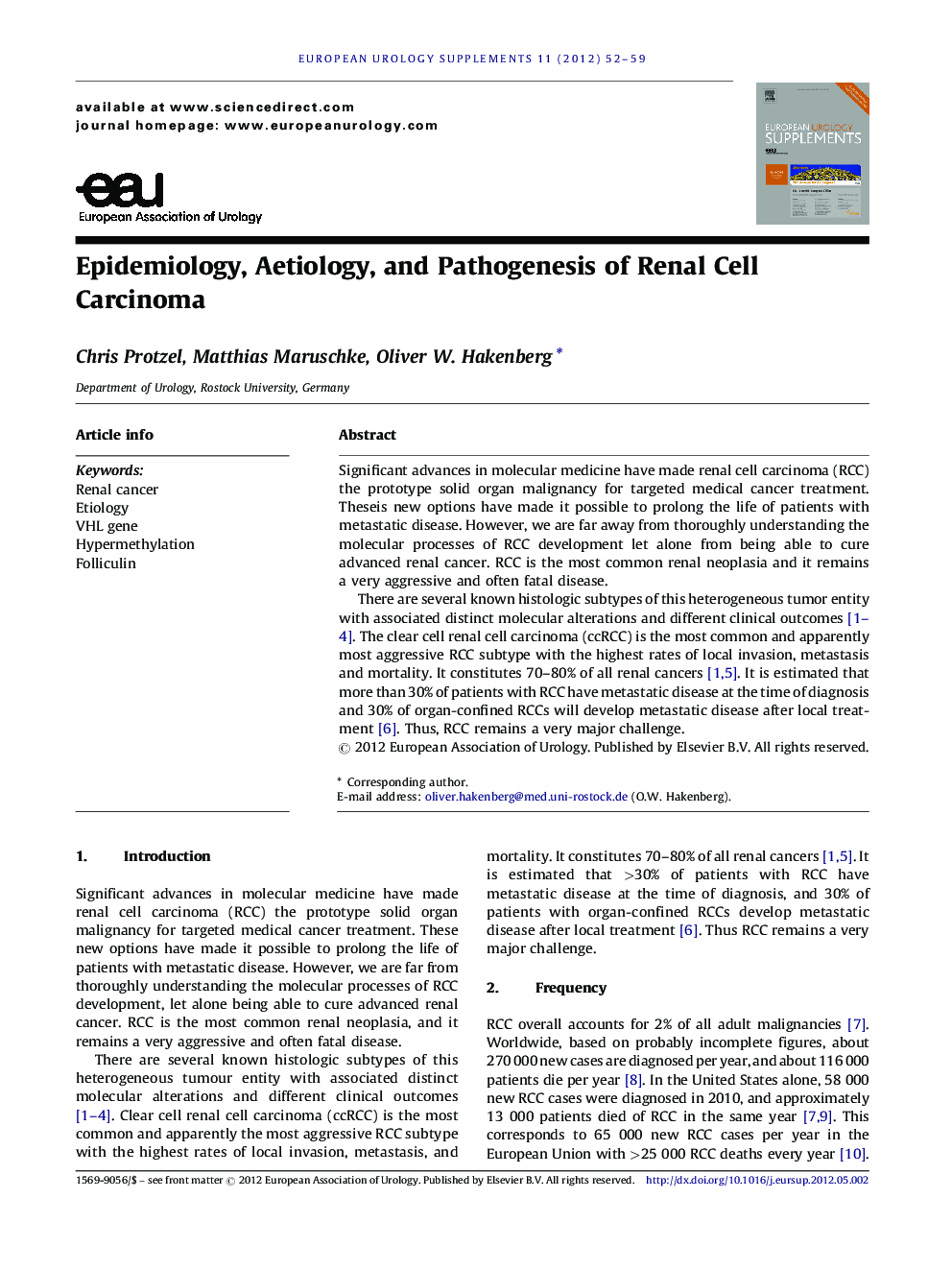| Article ID | Journal | Published Year | Pages | File Type |
|---|---|---|---|---|
| 3931686 | European Urology Supplements | 2012 | 8 Pages |
Significant advances in molecular medicine have made renal cell carcinoma (RCC) the prototype solid organ malignancy for targeted medical cancer treatment. Theseis new options have made it possible to prolong the life of patients with metastatic disease. However, we are far away from thoroughly understanding the molecular processes of RCC development let alone from being able to cure advanced renal cancer. RCC is the most common renal neoplasia and it remains a very aggressive and often fatal disease.There are several known histologic subtypes of this heterogeneous tumor entity with associated distinct molecular alterations and different clinical outcomes [1], [2], [3] and [4]. The clear cell renal cell carcinoma (ccRCC) is the most common and apparently most aggressive RCC subtype with the highest rates of local invasion, metastasis and mortality. It constitutes 70–80% of all renal cancers [1] and [5]. It is estimated that more than 30% of patients with RCC have metastatic disease at the time of diagnosis and 30% of organ-confined RCCs will develop metastatic disease after local treatment [6]. Thus, RCC remains a very major challenge.
